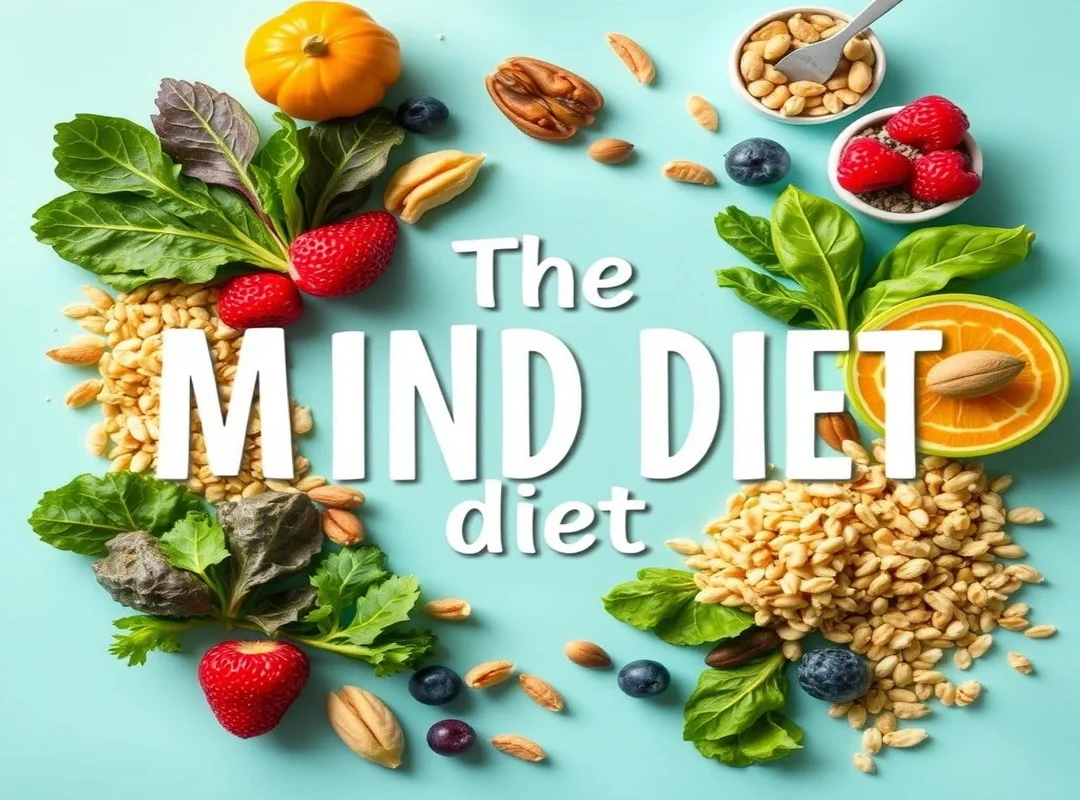As we age, the importance of maintaining our cognitive health becomes increasingly apparent. With the rising numbers of individuals experiencing memory loss and cognitive decline, the quest for effective preventive measures is more crucial than ever. Enter the MIND diet—an innovative nutritional approach designed specifically to safeguard your brain. But does it live up to the hype? Recent research suggests it might just be the key to preserving our thinking abilities as we grow older.
What is the MIND Diet?
The MIND diet, short for the Mediterranean-DASH Intervention for Neurodegenerative Delay, merges two well-known dietary patterns: the Mediterranean diet and the DASH (Dietary Approaches to Stop Hypertension) diet. This combination aims not only to promote heart health but also to provide a robust defense against cognitive decline.
Dr. Russell Sawyer, a leading researcher in the field, emphasizes the urgency of addressing cognitive decline in light of the increasing prevalence of dementia. “With the number of people with dementia increasing with the aging population, it’s critical to find changes that we can make to delay or slow down the development of cognitive problems,” he stated. This research sheds light on how dietary choices can significantly impact cognitive health across diverse populations.
The Science Behind the MIND Diet
So, how does this diet work its magic? The MIND diet is built on the foundation of 15 food groups, divided into brain-healthy and unhealthy categories. On the healthy side, you’ll find:
- Green Leafy Vegetables
- Other Vegetables
- Nuts
- Berries
- Beans
- Whole Grains
- Seafood
- Poultry
- Olive Oil
Conversely, the MIND diet limits the intake of five unhealthy food groups:
- Red Meats
- Butter and Stick Margarine
- Cheese
- Fried and Fast Foods
- Pastries and Sweets
This strategic approach emphasizes whole, plant-based foods while minimizing processed items that can contribute to inflammation and other health issues.
Dr. David Katz, a prominent specialist in preventive medicine, highlights the importance of these dietary features. “The MIND diet has all the key elements required to reduce systemic inflammation, facilitate weight loss, and improve overall health,” he explains. “That such effects would translate into protection of the brain is anything but a surprise.”
The Research Findings
The recent study published in the journal Neurology provides compelling evidence for the MIND diet’s effectiveness. As part of the REGARDS (Reasons for Geographic and Racial Differences in Stroke) study, which has been monitoring nearly 30,000 adults since 2003, researchers sought to understand how diet impacts cognitive health in diverse populations.
Among the more than 14,000 participants, researchers found that those who adhered closely to the MIND diet experienced a 4% lower likelihood of developing memory and thinking problems compared to those who did not follow the diet. This effect was even more pronounced in women, who showed a 6% reduction in risk.
The results remained consistent even when accounting for various factors, including exercise habits, education level, body mass index, and existing medical conditions. This suggests that the MIND diet may offer a protective effect against cognitive decline regardless of other lifestyle factors.
The Implications
These findings are particularly exciting because they indicate that simple dietary adjustments could have a significant impact on cognitive health. Dr. Sawyer notes the potential for these changes to make a real difference in people’s lives. “These findings warrant further study, especially to examine these varying impacts among men and women and Black and White people,” he stated. “But it’s exciting to consider that people could make some simple changes to their diet and potentially reduce or delay their risk of cognitive issues.”
Getting Started with the MIND Diet
If you’re intrigued by the MIND diet and want to incorporate its principles into your lifestyle, here are some practical tips to get started:
- Focus on Fresh Produce: Aim to include a variety of green leafy vegetables, berries, and other colorful vegetables in your meals. Think spinach salads, berry smoothies, or stir-fried veggies.
- Snack Smart: Instead of reaching for chips or sweets, keep nuts and fresh fruits handy for quick snacks. Almonds, walnuts, and berries are excellent choices.
- Choose Whole Grains: Opt for whole grains like quinoa, brown rice, and whole wheat bread instead of refined grains. These not only provide essential nutrients but also help maintain stable blood sugar levels.
- Include Lean Proteins: Incorporate seafood and poultry into your meals. Aim for two servings of fish each week, such as salmon or mackerel, which are rich in omega-3 fatty acids.
- Use Olive Oil: Replace butter or margarine with olive oil for cooking and dressings. It’s a heart-healthy fat that also supports cognitive function.
The Future of Cognitive Health
As the world grapples with the challenges of an aging population, the importance of finding effective strategies to maintain cognitive health cannot be overstated. The MIND diet offers a promising avenue for those looking to bolster their brain health through dietary changes. While further research is necessary to fully understand the extent of its benefits, the initial findings are encouraging.
As you embark on your journey toward better health, remember that small, manageable changes can lead to significant improvements over time. By embracing the principles of the MIND diet, you’re not just nurturing your body; you’re also investing in your cognitive future. So why not start today? Your brain will thank you!


